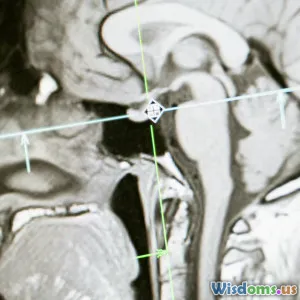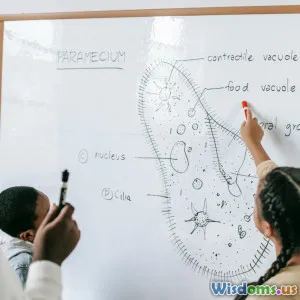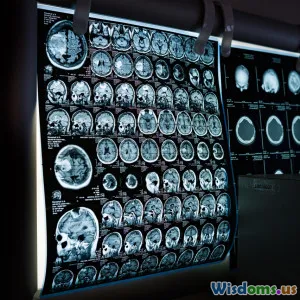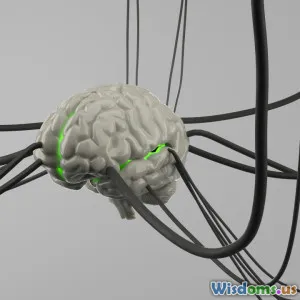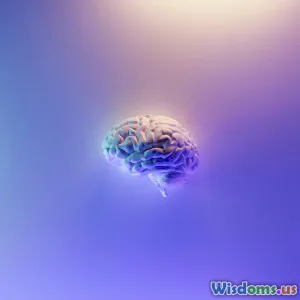
Can You Hack Your Brain into Self Awareness? Surprising New Research
10 min read Exploring cutting-edge methods and research to unlock self-awareness by 'hacking' the brain's processes. (0 Reviews)
Can You Hack Your Brain into Self Awareness? Surprising New Research
Introduction: Unlocking the Mind’s Hidden Potential
What if you could reprogram your brain to become more self-aware? Self-awareness—the ability to observe and understand one’s own thoughts, feelings, and motives—is often regarded as a pinnacle of human cognition and emotional intelligence. While traditionally associated with introspection and mindfulness practices, burgeoning research suggests that it might be possible to 'hack' your brain, enhancing or even rapidly developing self-awareness through novel neuroscientific and psychological strategies.
This article explores the compelling question at the crossroads of neuroscience, psychology, and technology: Can we hack our brains to boost self-awareness? You’re about to dive into cutting-edge studies, promising techniques, and groundbreaking findings that shed light on the often elusive construct of self-awareness and how we might take control of it.
The Essence of Self-Awareness: More Than Just Being Conscious
Before we embark on ways to hack the brain, it’s essential to define what self-awareness really means.
What is Self-Awareness?
Self-awareness involves a metacognitive capacity—the ability to think about one's own thought processes. It represents an advanced level of consciousness, where we don't only experience emotions or perceptions but can reflect on them.
According to psychologists like Dr. Christina Maslach, self-awareness allows for emotional regulation, better decision-making, and empathy.
Neuroscience Behind Self-Awareness
Regions such as the medial prefrontal cortex (mPFC), anterior cingulate cortex (ACC), and insular cortex are deeply involved in processes associated with self-reflection and introspection. Functional MRI (fMRI) studies have shown distinct activation patterns when individuals engage in tasks that require self-assessment.
However, self-awareness is not a fixed trait; it varies widely between individuals and over time.
Is It Possible to ‘Hack’ Self-Awareness?
Hacking, in this context, refers to applying intentional strategies or technologies to rewire or influence brain processes associated with self-awareness.
Traditional Approaches: Mindfulness and Meditation
Centuries-old practices like meditation have been shown to enhance self-awareness. For example, a landmark study by Sara Lazar et al. (2011) from Harvard found that mindfulness meditators exhibited increased cortical thickness in brain areas related to attention and sensory processing.
Meditation can be seen as a natural 'brain hack,' promoting enhanced introspective abilities and emotional regulation.
Modern Neuroscientific Interventions
Recent advances have introduced new tools that can potentially hack self-awareness:
-
Neurofeedback: A technique where individuals receive real-time feedback about brain activity, often through EEG, allowing them to consciously alter specific brainwaves associated with self-reflection.
- Example: Studies published in Frontiers in Human Neuroscience demonstrate that neurofeedback targeting the alpha and theta bands can increase mindfulness levels.
-
Transcranial Magnetic Stimulation (TMS): Non-invasive magnetic stimulation to modulate activity in brain regions involved in self-awareness.
- Clinical trials are exploring TMS over the prefrontal cortex to enhance self-regulation and reduce symptoms in conditions where self-awareness is impaired, such as schizophrenia.
-
Psychedelic-Assisted Therapy: Emerging research on substances like psilocybin indicates they can profoundly alter self-perception and foster lasting increases in self-awareness and psychological flexibility.
- Johns Hopkins Medicine’s studies indicate that carefully controlled psychedelic experiences can dissolve rigid self-concepts, promoting expanded consciousness.
Cognitive Training and Digital Tools
Innovative apps and VR experiences enhance metacognitive awareness by simulating social interactions or guiding users to reflect critically on their thoughts and behaviors.
For example, the use of virtual reality to create an out-of-body experience has demonstrated increased activation in brain networks responsible for self-referential processing.
Underlying Mechanisms: How These Hacks Work
Understanding the mechanisms provides clarity on why these techniques succeed or fail.
Neuroplasticity: The Brain’s Capacity to Adapt
Central to hacking self-awareness is neuroplasticity, the brain's ability to reshape its network connections in response to experience.
For instance, meditation promotes synaptic growth in the mPFC, strengthening pathways related to self-processing.
Enhancing Metacognition
Metacognition—the capacity to think about thinking—is a doorway to self-awareness. Neurofeedback and cognitive training explicitly target metacognitive control regions, training individuals to monitor and regulate mental states.
Disrupting the Default Mode Network (DMN)
The DMN is a network active during mind-wandering and self-referential thought. Overactivity can lead to rumination and poor mental health.
Interestingly, psychedelics and meditation have been found to transiently suppress DMN connectivity, enabling novel perspectives and increased self-insight.
Real-Life Implications and Success Stories
Enhancing Emotional Intelligence in the Workplace
Companies like Google and General Mills offer mindfulness training programs to improve employee self-awareness, leading to better stress management and collaboration.
Clinical Applications
Neurofeedback combined with cognitive-behavioral therapy (CBT) has helped patients with PTSD and anxiety disorders gain insights and control over intrusive thoughts.
Personal Transformation
Many individuals report transformative self-awareness leaps after intensive meditation retreats or psychedelic sessions, describing enhanced empathy, authenticity, and clarity in life.
For example, Michael Pollan's bestselling book "How to Change Your Mind" narrates his psychedelic experiences that radically changed his understanding of self.
Practical Tips: How to Start Hacking Your Brain Into Greater Self-Awareness Today
- Practice Mindfulness Daily: Start with 10 minutes focusing on your breath to build introspective muscle.
- Use Neurofeedback Apps: Explore accessible neurofeedback platforms designed for meditation augmentation.
- Engage in Reflective Journaling: Write regularly to cultivate awareness of thoughts and patterns.
- Consider Professional Guidance: For advanced methods like TMS or therapy-assisted psychedelics, consult qualified practitioners.
- Leverage Technology: VR experiences that promote perspective-taking may provide immersive pathways to self-understanding.
Looking Ahead: The Future of Brain Hacking for Self-Awareness
As neuroscience and technology evolve, the possibility of reliably augmenting self-awareness grows. Ethical considerations, however, remain paramount—enhancing a profound human trait demands caution and respect for psychological complexity.
Emerging AI and brain-computer interfaces may soon offer even more personalized, precise, and effective 'brain hacks' designed to optimize self-awareness without extensive time commitments.
Conclusion: The Journey Within is Hackable
The dream of hacking your brain to achieve higher self-awareness is moving from science fiction into credible scientific territory. With tools ranging from age-old meditation to modern neurotechnology and psychedelics, we have multiple promising pathways to cultivate deeper insight into ourselves.
Understanding and enhancing self-awareness isn’t simply an intellectual exercise—it can transform emotional intelligence, decision-making, and overall life satisfaction. While not a quick fix, the ability to intentionally strengthen self-awareness through biological and psychological means is expanding rapidly.
So, can you hack your brain into self-awareness? The evidence suggests yes—with curiosity, dedication, and the right approach, a more conscious you is within reach.
References:
- Lazar, S. W., et al. (2011). Mindfulness practice leads to increased regional brain gray matter density. Psychiatry Research: Neuroimaging.
- Frontiers in Human Neuroscience (2020). Neurofeedback and mindfulness.
- Johns Hopkins Medicine (2021). Psilocybin research for mental health.
- Pollan, M. (2018). How to Change Your Mind. Penguin Press.
- Zeidan, F., et al. (2010). Mindfulness meditation improves cognition: Evidence of brief mental training. Consciousness and Cognition.
(This article synthesizes current research and expert insights into accessible strategies for enhancing self-awareness.)
Rate the Post
User Reviews
Popular Posts












